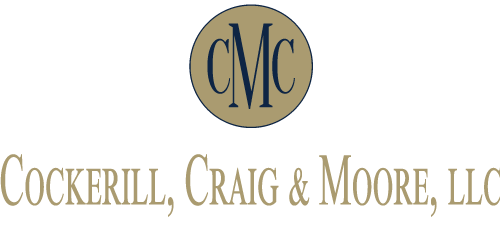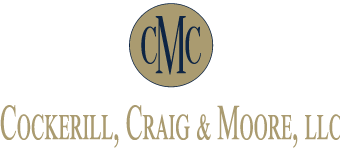STRENGTHENING THE SPECIAL INVESTIGATIONS UNIT – OUTSIDE COUNSEL PART I
PARTNERSHIP – INCREASING EFFICIENCY AND EFFECTIVENESS

The standard model of the Special Investigation Unit (“SIU”)/Outside Counsel partnership is what you could describe as the box model; the investigators for the SIU unit do their investigation and prepare their case with no input from the counsel who will to present the case if litigation occurs. They present what they’d consider to be the finished product, all boxed up, and drop it off on their outside counsel’s doorstep to pursue. This was the same model that existed in the State of New Jersey for civil insurance fraud matters handled by the Deputy Attorneys General assigned to handle those cases for the Insurance Fraud Division, and then later the Office of The Insurance Fraud Prosecutor (“OIFP”). With the Office of the Insurance Fraud Prosecutor, an opportunity arose to “embed” the Deputy Attorneys General assigned to insurance fraud matters with their client, the OIFP. This proximal relationship helped stimulate the transition of the relationship into a more closely linked partnership, which communicated throughout the investigation and litigation, enabling greater efficiency and effectiveness in imposing civil sanctions for fraudulent insurance claims and applications. The lessons we learned through this process can be replicated to strengthen the SIU/Outside Counsel relationship without having to physically relocate the members of the partnership. Each entry of this blog will touch on an individual lesson learned with practical suggestions of how to implement better practices to make your partnership stronger and more efficient.
LESSON ONE: OPENING THE BOX AND REPACKING IT
One of the weaknesses of the box model is it is inherently inefficient. When an investigation must be re-done to bring out essential information, to put the information obtained in a form suitable for presentation in court, or to preserve it for trial, the efforts of outside counsel duplicate the efforts of the SIU unit at an additional cost. If essential information is lost because of passing time between the initial investigation and the follow up, cases can be compromised or lost before they even get started. Let me give you a concrete example; Insurance Carrier writes a policy for an Insured premised upon their automobile being principally garaged in a location for rating purposes. Instead of the Insured’s parents’ home – the quiet shady lane with a low crime rate where they grew up – Insured lives in a transitional area of an urban city. There the young professionals in his or her peer group live and clubs and nightlife – plus auto thefts, accidents, and vandalism – are plentiful. Based upon a theft claim or information received Insurance Carrier suspects the automobile is principally garaged in the urban city and uses their SIU investigative resources to locate the location where Insured lives. The SIU investigator locates a building manager who confirms that the Insured has leased an apartment for three years and pays an extra monthly fee for the parking area behind the apartment building to park his insured automobile. The investigator reports the conversation in an Investigative Memorandum and thanks the landlord for his time. Based upon this interview the SIU unit recommends the policy be rescinded for application fraud and refers the matter to outside counsel to defend the theft claim and pursue a counterclaim under the Insurance Fraud Prevention Act, (N.J.S.A. 17:33A-1 et seq.). When outside counsel gets the case, they realize that they need:
- A copy of the lease agreement;
- A copy of the parking pass application;
- A certification of the building manager that the copy of the lease agreement and the parking pass application are true copies of the business records they retain on file;
- An affidavit or certification from the building manager about the facts they have related to the investigator;
- A copy of the actual insurance applications or renewals that the Insured completed for each term of the insurance coverage during the three year period that the lease was in effect.
To obtain this information, counsel must direct the investigator to go back to the building manager and obtain this information again, and then perhaps find that the building was:
- A. damaged by fire destroying the records and dispersing the landlord and the tenants; or
- B. designated for urban renewal with the same effect; or
- C. the building manager decides it might not be in the best interests of the owners of the building to be providing information harmful to their tenants, and declines to cooperate, and then refers all inquiries to the owner’s counsel.
Here’s how that investigation can be orchestrated to be more efficient and effective:
- Make a practice of digitally recording all interviews;
- Involve counsel on an advisory basis at the data collection level. Counsel can suggest questions or areas of inquiry for the interview and review interviews after they have been completed to determine if follow-up or clarification is needed;
- Have witnesses complete certifications regarding the content of their interview either on the spot; handwritten and signed by the witness; or prepared from the digital recording and sent or – better yet – brought to the witness to sign – containing the representation that the information it contains is true based on their own personal knowledge – these can be potentially[1]moved into evidence to support a dispositive motion, used to refresh a witness’s recollection, or used to impeach a witness who recants their statement;
- Obtain certified copies of any business records obtained – something as simple as a certification of the witness, why they have the record, that it has been maintained in the ordinary course of their business, and the copy accurately reflects the content of the original in their file – with this foundation this too can be moved into evidence to support a dispositive motion or at trial.
Having these materials in hand, outside counsel can press for a pre-litigation settlement, withdrawal of a claim, or file a complaint and aggressively pursue a dispositive motion granting relief to the Insurance Carrier rescinding the policy and imposing civil sanctions under the Insurance Fraud Prevention Act. Sanctions under the Insurance Fraud Prevention Act would compensate the insurance carrier for their investigative and legal expenses and any claims payments made.
Contact CockerillCraigMoore Law
At CockerillCraigMoore Law, all of our lawyers have decades of courtroom experience. Three of our partners are certified as civil trial attorneys by the New Jersey Supreme Court, and two are fellows of the American College of Trial Lawyers. To learn more about the services we provide to insurance carriers, contact our office online or call us at 856-795-2220 for an appointment.


